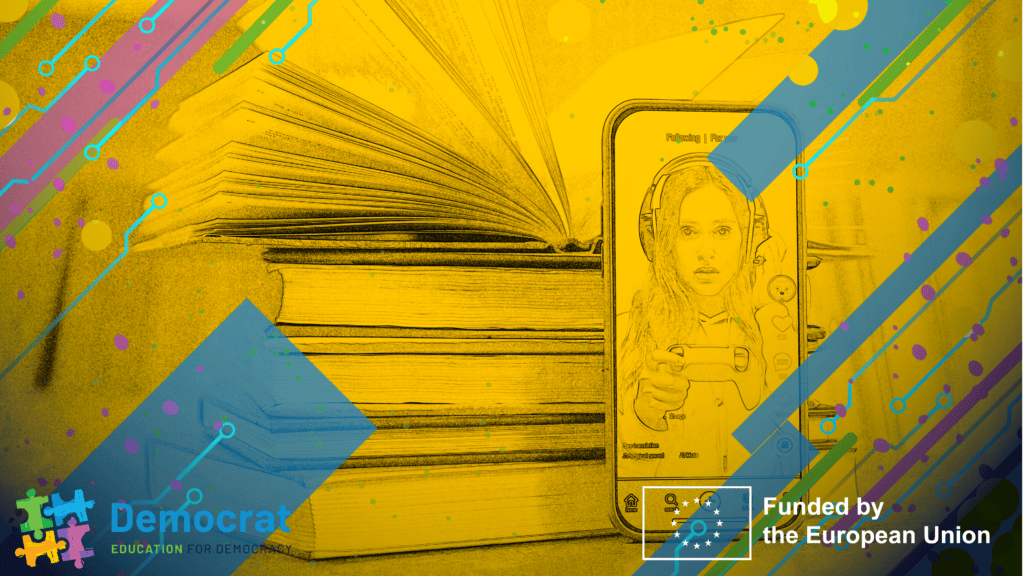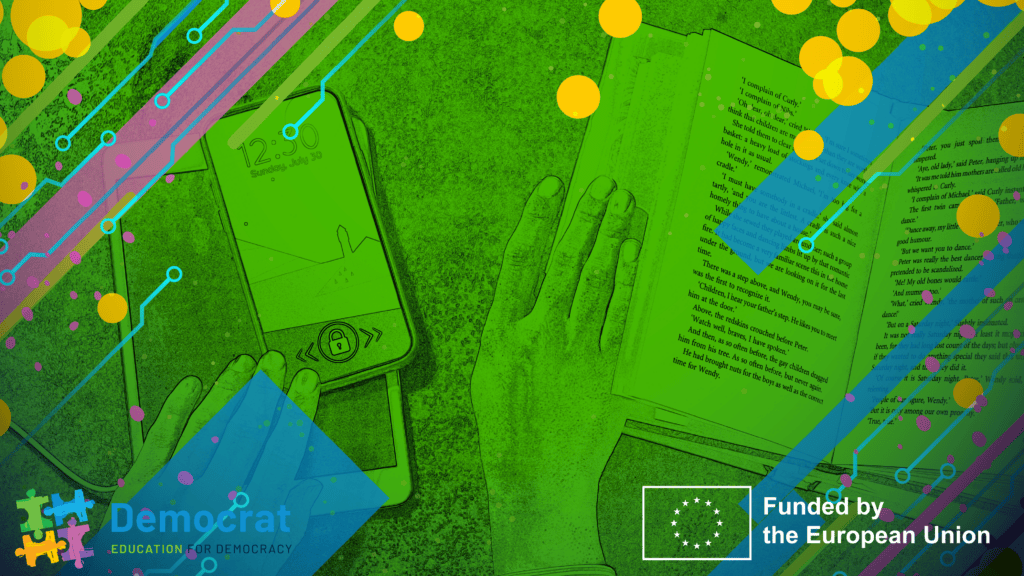Enhancing Digital Literacy in Disadvantaged Schools

Introduction to Digital Literacy in Disadvantaged Schools
Parents International is participating in DRONE, a Horizon Europe project focusing on digital literacy and supporting digital citizenship education, particularly for disadvantaged students and schools. We are conducting primary research with students, teachers, parents, and school leaders in the Netherlands and Germany, and supporting our Hungarian partner in their research. Recently, we visited a remote, disadvantaged school in Hungary, conducting interviews with all four stakeholder groups during one trip. The surprising outcomes could be highly informative for the Democrat project, particularly since the students interviewed are aged between 12 and 14.
Research Focus: Digital Citizenship Education
The school’s student population is nearly 100% Roma, facing multiple disadvantages. Parents have relatively low levels of education, with lower-level VET degrees or primary education only. Despite this, the school has an active leader who organizes numerous training opportunities for her team. They receive substantial professional support from the school’s owner, benefit from small class sizes, and consequently offer ample support for students. Their outcomes are exceptional for their category. The school fosters a collaborative spirit among the teaching team and emphasizes working closely with families.

Student Interviews on Digital Literacy
During the interviews, we explored several topics:
- Digital platform use
- Identifying fake information and videos
- Sharing personal and external content
- Interest in social, economic, and political topics
- Awareness of online data sharing
- Knowledge of artificial intelligence
Digital Awareness Among Disadvantaged Students
Surprisingly, all interviewed students regularly discuss these topics with their parents and friends working in IT. They are very conscious about what they share online, avoid external content, and are cautious about their digital footprint. They are aware of the risks of sharing personal data and avoid accepting friend requests from unknown people. Most students can explain how to identify AI-generated content and verify information. They often watch and discuss the news with their parents, recognizing that no news outlet is completely trustworthy.
Parental Involvement in Digital Literacy
Parents displayed a similar level of digital literacy and consciousness. They learn alongside their children, show interest in broader topics, and follow the news. While some parents trust certain news sources, others verify information through various means. Opinions on AI varied, but awareness was consistently high. Both parents and students reported few cyberbullying incidents, which were effectively resolved by families, often without involving the school.
Teachers’ Perspectives on Digital Literacy
Conversely, the teachers’ responses were shocking. They showed little interest in news, social, economic, or political topics, and expressed a lack of energy to focus on potential digital dangers. Many believed their data would inevitably be misused and lacked understanding of how personal data could be misused. Teachers mainly relied on Facebook groups for information, mostly about professional matters, and did not verify received information. None had formal training in digital literacy, and although the school leader had received AI training, it was not extended to the staff. The school has no digital strategy, and teachers believe it’s the family’s responsibility to educate children about safe internet use.

Role of School Leaders in Promoting Digital Literacy
Regarding disabled students, none of the interviewees believed misinformation posed an increased risk. However, some students noted that peers with disabilities might be more susceptible to bullying. While this research offers only a small snapshot, similar levels of digital literacy were observed in vulnerable and disadvantaged students in the Netherlands. Further research in other countries will reveal more about the perspectives of parents, teachers, and school leaders.
Impact of Digital Literacy on Vulnerable Students
The interviews revealed that vulnerable and disadvantaged students possess a high level of digital literacy, which is crucial for their protection online. They are knowledgeable about safe internet practices and can identify false information. Their digital awareness helps them navigate online spaces securely, reducing their vulnerability to cyberbullying and misinformation.
Conclusion: Building a Digital Literacy Strategy
The findings underscore the importance of integrating digital literacy into the education system, especially in disadvantaged schools. To bridge the gap between students’ and teachers’ digital literacy levels, comprehensive training and a cohesive digital strategy are essential. Empowering students, parents, and educators with digital literacy skills can transform education and foster a safer, more informed digital environment for all.